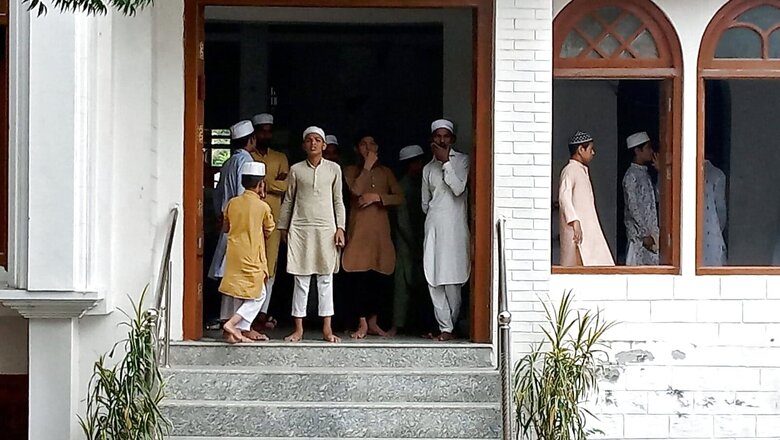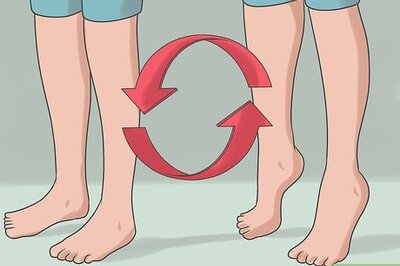
views
Muslim Personal Law permits the marriage of girls under the age of 18. Customary law recognised in India under the Shariat Application Act, 1937, permits, legally speaking, such marriages. A Muslim girl upon attaining puberty can be married off. Such a practice survives in modern-day India despite a law like the Prevention of Children from Sexual Offences (POCSO) Act, 2012, and gets legal sanctity under the pretext of personal laws.
Any person below the age of eighteen is recognised as a child under the provisions of POCSO. Indulging in sexual activities with a child is sexual assault. The Supreme Court in its landmark judgement of 2017 struck down Exception II under Section 375 of the Indian Penal Code that gave immunity to husbands who indulged in sexual activity with a minor wife from being prosecuted for rape. Sex with a minor wife is rape, according to the Supreme Court of India. The direction of the evolution of law deduced through various judgements is absolutely clear. The judiciary wants to do away with such regressive practices.
Religious reforms are marred by politics of opportunism driven by the need to appease the conservative within the fold. Making the Hindu Code Bill a reality was a politically uphill task. The architect of the Indian constitution, Dr Bhimrao Ambedkar, was the earliest proponent of women’s rights and religious reform. Dr Ambedkar resigned as the law minister from Jawaharlal Nehru’s cabinet when the government did not pursue the Hindu Code Bill with the requisite political vigour. The strides made by Hindu women in all spheres of life and the fierce assertion of their identity would be impossible without the reform in the sphere of personal laws.
But the story of the Muslim Personal Law is one replete with appeasement and an utter lack of courage from the political class. A case in point is the historic subversion of the Shah Bano judgement by the Congress government led by Rajiv Gandhi in 1986. The Supreme Court granted right of maintenance to Muslim women beyond the period of three months (iddat) at par with Hindu women. The government diluted the judgement by bringing in the Muslim Women (Protection of Rights on Divorce) Act, 1986.
The move consolidated the marginalisation of the progressive voices within the community and mainstreamed the regressive ones. One of the most troublesome aspects of Muslim Personal Law is the fact that it allows the marriage of underage girls. The customary practice stands in stark contrast to India’s jurisprudence and how the Constitution has been interpreted to give equal rights to women in social, religious, and public spheres.
The reform of any personal law, especially pertaining to the minority community, is a tricky and difficult task. Reform requires the codification of personal laws and practices. Hindu practices of saptapadi or marriage, inheritance, and adoption were all codified and then they could be reformed. For example, polygamy could be outlawed in Hindu religion through codification. It’s true for most other religions and faiths in the country.
But the Muslim Personal Law remains largely uncodified. There is no codification of the process of marriage, divorce, or adoption under a statute. Muslim Women (Protection of Rights on Divorce Act), 1986, brought with the intent of nullifying the Supreme Court judgement, lists down grounds under which women can seek ‘khula’ or divorce and maintenance. But the process of marriage and divorce is governed by customary practices which are uncodified, without any legislation.
The Supreme Court judgement on triple talaq was a huge milestone and yet another precedent of the Indian judiciary’s commitment to right to equality for women folk. But, I dare say, the judgement is another piecemeal approach. The court ruled on the constitutionality of triple talaq or talaq-e-bidat but did not overrule Narasu Appa Mali. The judgement or rather the ghost of Narasu Appa Mali prevents personal laws from being tested against fundamental rights. Though triple talaq is a criminal offence, we still don’t have a thorough codification of the Muslim Personal Law pertaining to marriage and divorce. This lacuna has led to archaic and regressive practices like marriage of minor Muslim girls to survive in India after 75 years of Independence.
A common civil code or a uniform civil code will only be a reality once the process of codification is undertaken for Muslim Personal Law. A staggered reformist move through a judgement or law shall only be the first aid to the wound and not the impending cure.
Muslim Personal Law should be codified and so-called marriage of Muslim girls under eighteen years of age should be outlawed. The matter right now is pending the final adjudication at the Supreme Court of India after conflicting judgements from the High Courts.
Read all the Latest India News here




















Comments
0 comment